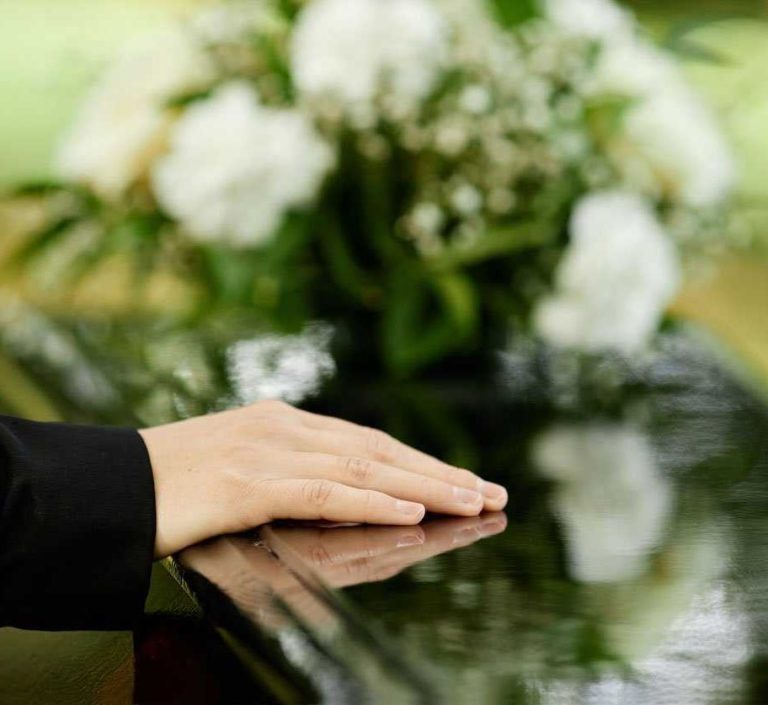
A funeral celebrant is someone qualified to host and officiate funeral services. As well as conducting the funeral itself, celebrants are involved in planning the order of service, music, writing the eulogy and creating a meaningful service for the person who has died. Celebrants will generally aim to create services that celebrate a person’s life, as well as providing an opportunity to say goodbye.
There are two main types of celebrant to choose from – a civil celebrant and a humanist celebrant. Both civil and humanist celebrants aim to conduct funerals that feel both meaningful and personal. The main difference between them is the level of religious content permitted within the funeral.
Civil celebrants are flexible in their approach and can conduct both religious, semi-religious, non-religious and spiritual funerals. Religious poems, readings, music and prayers can be included. Although they can officiate religious or semi-religious funerals, celebrants can only conduct funerals in non-denominational locations.
Humanist celebrants work similarly to civil celebrants, however they conduct non-religious funerals that echo the humanist philosophy. If a religious poem or hymn is particularly important to the deceased or their family, a humanist celebrant may allow it to be included in the ceremony. Humanist funerals can only take place in non-denominational locations.
Celebrants usually work independently and will charge a fee for their services. The cost will vary depending on the celebrant and the service they are providing, but on average you can expect to pay around £230. Your chosen funeral director is able to instruct the celebrant on your behalf should you wish, otherwise you can manage this independently.

What is a funeral celebrant’s role?
The rise in popularity of funeral celebrants arose from families wanting to arrange personalised funerals that celebrate their loved one’s life, and aren’t bound by set rules and regulations.
For this reason celebrants will typically work closely with a family to familiarise themselves with the deceased, ensure a family’s funeral wishes are fulfilled, and create a personalised ‘celebration of life’ service.
Celebrants will often hold space for families as arrangements are made, providing comfort, support and guidance where needed.

A funeral celebrant will typically have the following duties;
- Support the family through the funeral planning
- Ensure specific funeral wishes are carried out,
- Provide ideas for ways to create personal touches, including a visual tribute
- Offer support, guidance and advice where needed
- Help the family to plan and arrange the order of service, including music, readings and poems
- Create the eulogy for the funeral alongside the family
- Host and officiate the funeral service on the day
- Offer support to the family on the day of the funeral
©Copyright. All rights reserved.
We need your consent to load the translations
We use a third-party service to translate the website content that may collect data about your activity. Please review the details and accept the service to view the translations.
